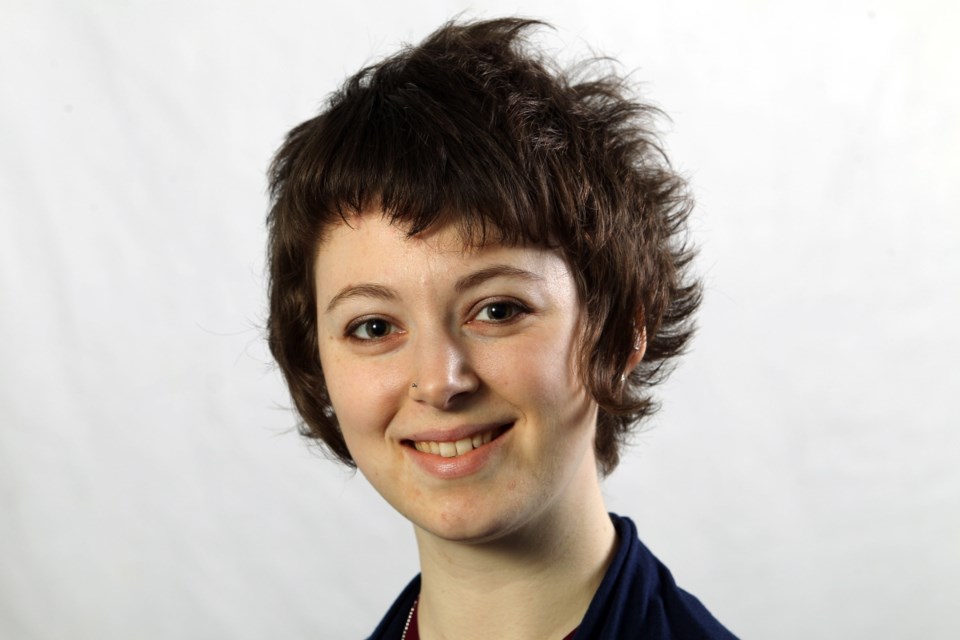 |
|
Shannon Corregan |
I was eating lunch in the University of Victoria’s BiblioCafe last weekend when, much to my surprise, a group of young people in face paint, horns and crinolines walked in. I had unwittingly wandered onto campus in the middle of Tsukino-Con, an annual Japanese pop-culture convention, and the cosplayers were having lunch.
Cosplay, for those who haven’t heard of it, is short for “costume play,” an activity wherein people dress up like characters from comic books, movies or TV shows. It’s a popular activity at conventions, where fans are free to express their enthusiasm for these fictional worlds and are rewarded for the time, effort and creativity they put into their costumes.
Convention culture is fascinating, and one of the ways it stands out is by the atmosphere of tolerance that pervades most cons.
Cons have, of course, inherited their fair share of sexism and racism from mainstream society. In 2012, Mandy Caruso, a professional fashion designer and artist, found herself the centre of attention at New York Comic Con when she called out her interviewer for his sexist commentary on her Black Cat costume. Just a few months ago, Chaka Cumberbatch unwittingly generated controversy by cosplaying Sailor Venus, a light-skinned character, though she herself is black.
More and more, however, cons are becoming places that actively promote respect and tolerance for all attendees. As I checked out the cosplayers’ outfits, noting the range and diversity of bodies in front of me, I wondered if this didn’t extend to fat acceptance as well.
After all, cons are places where fans of all shapes, sizes and colours join together and celebrate their common interests, and if a Size 16 fan chooses to dress up as Sailor Moon and absolutely nails it, nobody’s going to tell her she shouldn’t.
Well, somebody might — there are jerks in every crowd — but on the whole, con culture seems to hold that it doesn’t matter who you are so long as you’re passionate about what you do. As I watched the cosplayers carefully trying to eat their lunch without smearing their face paint, I wondered if in this — as in most things — the geeks are slightly ahead of the curve.
Body acceptance is an issue that’s close to my heart, but it’s difficult to address head-on, especially because so many of us are taught to fat-shame from a very young age. When adult women discuss their bodies, the language we use is often the language of shame or guilt — partly because that’s how many of us feel about bodies, but partly because that’s the only way we talk about our bodies with our peers.
When was the last time you heard a woman talk about how delicious her burger was, without adding a caveat about exercising or dieting? How often have you heard people criticize their own body for being “too fat”? Or worse, another person’s body for being “too fat”? Too fat for what? Too fat to be Sailor Moon?
Because we have so thoroughly fused the language of bodies, weight, health and shame, it’s almost impossible to talk about fat-shaming without invoking a chorus of “But I’m doing it for your own good! It’s not healthy to be fat!” We need to dispel the myth that when we’re freaking out about fat, we’re worrying about health.
Most of us would never offer unsolicited comments about another person’s appearance, but this hesitation goes out the window when it comes to fat bodies. We ask people guilelessly: “Have you ever thought about losing weight?” As though people who are overweight aren’t reminded day in and day out that their bodies are unacceptable.
Knowing what we do about the shortcomings of the body-mass index, we know that fat people can be in prime health and thin people can have poor diets and never exercise. While it’s broadly true that obesity correlates with health issues, there’s no way to tell if a person is healthy or unhealthy just by looking at them, yet we persist in this idea that it’s OK to comment familiarly on an overweight person’s appearance in the name of “health.”
Maybe I’m off the mark by idealizing these cosplayers as angelic fonts of body acceptance, but last weekend they were out celebrating not only their creativity and ingenuity, but also their bodies, flaws and all.
Maybe they’re one step ahead of the rest of us.


